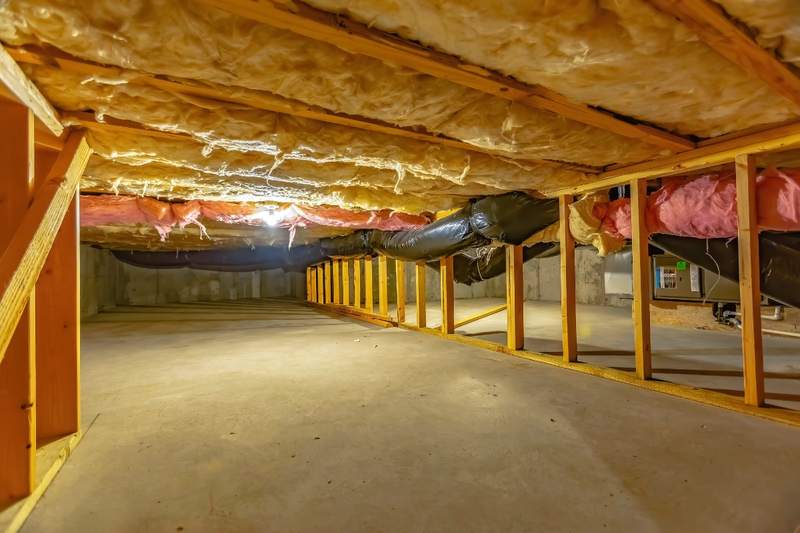
If it’s your first time buying a home, you likely need a mortgage. Getting a home loan may be the biggest financial commitment you ever make, so figuring out how to choose the right lender and loan can be stressful.
Asking potential lenders the right questions can help you find a loan that’s right for you. Here are 22 questions to ask mortgage lenders.
1. What Types of Mortgages Do You Offer?
It’s a good idea to understand the different types of loans that are available before deciding which is the best fit for your financial situation. Common types of mortgages include:
- Conforming conventional mortgages.
- Nonconforming conventional mortgages, aka jumbo loans.
- Fixed-rate loans.
- Adjustable-rate loans.
- FHA loans, which are backed by the Federal Housing Administration.
- VA loans, insured by the Department of Veterans Affairs.
- USDA loans under the Department of Agriculture.
2. How Much Can I Borrow?
Knowing how much you’re able to borrow, along with how much you have saved for a down payment and closing costs, will help you understand how much house you can afford. It also helps you choose a loan type. Some loans, such as conforming loans and FHA loans, have limits on how much can be borrowed.
3. What Will My Monthly Payment Be?
Your monthly payment is the amount you’ll owe on your mortgage each month. Part of your monthly payment pays down the principal, and the other part pays the interest. Your monthly payment also may include payments into an escrow account to cover property taxes and homeowners insurance.
4. How Much Do I Need For a Down Payment?
Your down payment is the amount of money you pay upfront when you buy a home, and it’s calculated as a percentage of the total purchase price. Different types of loans have different down payment requirements:
- Conventional loans: 3%.
- FHA loans: 3.5%.
- VA loans: No down payment minimum.
- USDA loans: No down payment minimum.
“The amount you’ll need for a down payment can vary depending on a number of factors, including the type of loan you’re getting, the price of the home, and your credit score,” says Adie Kriegstein, a real estate agent and founder of the NYC Experience Team at Compass in New York. “The most common down payment amount is 20% of the purchase price. This means that if you’re buying a $300,000 home, you’ll need to put down $60,000 upfront. However, many lenders offer loans with smaller down payments.”
5. What Is the Loan’s Interest Rate and APR?
The interest rate is the annual cost of the loan, expressed as a percentage rate. APR stands for annual percentage rate and includes the interest rate, plus additional fees, mortgage insurance, and closing costs. Because it includes more fees, the APR gives you a more complete view of a loan’s costs and is a helpful tool for comparing mortgage offers.
6. How Much Will I Pay Over the Life of the Loan?
You’ll want to know how much you’re going to pay over the life of the loan. This varies based on the loan term, your interest rate, and whether you make extra payments. The total will help you compare loan offers and budget for the long term.
7. Do You Offer Pre-Qualification or Preapproval?
Both services involve the mortgage lender conducting a basic review of your finances and providing a letter that estimates the amount and terms of the loan it expects to offer you. Pre-qualification is a less rigorous process, but it’s still useful to buyers at the start of the process who are figuring out how much they can borrow. Preapproval usually requires a more thorough review of your finances, and reassures real estate agents and sellers that you can get financing to buy a home.
8. Do You Offer a Mortgage Rate Lock?
If interest rates are low but you think they may increase in the near future, you might want a rate lock. Also known as a lock-in, a rate lock ensures you can get a mortgage at that interest rate for a certain amount of time — typically 30, 45, or 60 days.
9. Can I Buy Mortgage Points?
Paying mortgage points — also known as discount points — allows you to reduce your loan’s interest rate by paying an upfront fee. While you’ll pay more at closing, buying points reduces your monthly payment and saves you money overall.
10. What Credit Score Is Required?
Different loan types have different minimum credit score requirements:
- Conventional loan: Minimum credit score of 620.
- FHA loan: Minimum credit score of 500, with a minimum 10% down payment.
- VA loan: No minimum credit requirement.
- USDA loan: No official requirement, though lenders may require a minimum of 640.
11. What’s the Maximum Debt-to-Income Ratio?
Your DTI ratio shows how much of your income is required to pay your debts, and lenders use it to measure how much room you have in your budget for a monthly mortgage payment. Calculate your DTI ratio by adding up all your monthly debt payments, dividing that number by your gross monthly income, and multiplying by 100 to get a percentage.
Different lenders and loans have different DTI ratio limits, which is why this is an important question to ask. As a general rule, you’ll want to keep your DTI ratio under 50% to get a mortgage.
12. Do You Handle Underwriting or Outsource It?
When you apply for a mortgage, your lender will verify your finances to confirm that you can afford to pay back the loan. This process is known as underwriting, and will require you to provide all your financial documents — bank statements, tax returns, W-2 forms, etc. Many lenders conduct the underwriting process in-house, while others outsource it to third-party services.
13. How Long Will It Take To Process My Loan?
You’ll want to make sure that your lender can complete underwriting and approve your loan in time for your closing date.
“The loan application process can vary in duration depending on several factors, including the complexity of your financial situation, the type of loan you’re applying for, and the lender’s internal processes,” Kriegstein says. “Ask your lender what time range to expect, and what the average closing time is for its other borrowers. It’s also a good idea to ask if there is anything you can do on your side to speed up the process.”
14. How Much Are Closing Costs?
Closing costs are all the different fees associated with taking out a loan and transferring legal ownership of the property. You can expect closing costs to total 2% to 5% of the purchase price of a home.
“It’s important to budget for closing costs when you’re preparing to buy a home,” Kriegstein says. “While they can add a significant amount to your upfront costs, they’re a necessary part of the process. Working with an experienced real estate agent and lender can help you understand exactly what to expect when it comes to closing costs and ensure that you’re prepared for this important step in your homebuying journey.”
15. Do You Charge an Origination Fee?
An origination fee pays for the lender to underwrite and fund the loan. Some lenders charge this fee, some don’t, and some may be willing to waive it. Find out whether your lender requires this fee.
16. Is There a Prepayment Penalty?
Some loan agreements charge the borrower a fee for paying off some of or all the mortgage principal early as compensation for lost interest payments. Not all mortgages have a prepayment penalty, but you’ll want to know if yours does before you close on your home. Typically, prepayment penalties only apply if you pay off your entire principal balance within three to five years.
17. Which Fees Are Negotiable?
Some closing costs are unavoidable, while others can be negotiated. For example, the home appraisal fee, credit report fee, and tax monitoring fee are required, and the providers are chosen by the lender. However, while the survey fee, pest inspection fee, and title search fee also are required, the borrower can shop around for these services to save money. The loan estimate that your lender is required to provide within three days of receiving a mortgage application will list the services you can shop for.
18. What Additional Fees Should I Expect at Closing?
Be sure to ask your lender if any additional fees will be added to your closing costs. You’ll already be paying a large sum upfront with your down payment and closing costs — the last thing you’ll want is “hidden” costs to pay.
“There will be a lot of fees involved, so ask the lender upfront how much you are expected to pay and what the seller can cover,” Kriegstein says. “Make sure you understand the purpose of each fee you’re asked to pay and if it’s really necessary. Lack of transparency is a major concern. If a lender is not forthcoming about fees, terms or conditions, it’s a warning sign.”
19. Will I Need Mortgage Insurance?
Mortgage insurance compensates the lender for its losses if you are unable to repay your mortgage. Mortgage insurance is required for all FHA and USDA loans. If you’re taking out a conventional loan and making a down payment that’s less than 20% of the purchase price, your lender will require you to pay for private mortgage insurance until you have 20% equity in the home. VA loans don’t require mortgage insurance but charge an upfront guarantee fee instead.
“It is important to note that mortgage insurance does come at a cost, which is typically added to the borrower’s monthly mortgage payment,” Kriegstein says.
20. Is an Escrow Account Required?
An escrow account — also known as an impound account — collects and holds funds to pay your property taxes and homeowners insurance. Some lenders require borrowers pay those expenses with an escrow account, while others will allow you to opt out. Remember, you’ll still need to pay your taxes and insurance premiums even if you don’t use an escrow account.
21. Do I Qualify For a Down Payment Assistance Program?
Down payment assistance programs usually are offered by states, local governments, and nonprofits to help make homeownership more affordable. These programs typically are geared toward low- and moderate-income first-time homebuyers, though some programs are for people working in specific professions, such as teachers, firefighters, and public service workers.
22. Who Will Service My Loan?
The lender that approves and funds your loan may not manage it on a day-to-day basis. Some lenders pass on those duties to a servicing company, which accepts payments, generates and sends out statements, manages escrow funds, and settles customer service issues. It’s important to know if your lender will service your loan, or if there will be another party involved.
FAQ
Here are answers to some frequently asked questions about what a first-time homebuyer should ask potential lenders.











